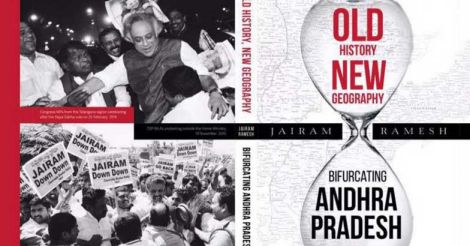Formulation of government policies is a complex process and very little of the thoughts and factors that go into such decision-making finds it way into public domain. Governments of nations such as USA and UK have a thirty-year rule by which all documents pertaining to decision making in government including the minutes and record of proceedings of meetings are released into public domain. There is also the long established practice of leaders and officials in high positions writing their memoirs, where they place before the public the factors that went into some of the key decisions in which they involved.
Such works, in addition to enlightening the researchers also give more details to the public about the various aspects of decision making and functioning of the government. For example, the writing on China by Henry Kissinger forms the most authoritative account of the functioning of Nixon administration and the top Chinese leadership during that period.
However, in India, the reasons for government decisions remain secret except what is leaked out into the media through confidential sources. There is no provision in the existing legal framework for placing details of meetings and the decisions taken by the government after the lapse of a considerable amount of time. Memoir writing is more the exception than the rule and even when written they are more in the nature of justifying one’s actions rather than an objective analysis of the factors involved in the framing of various policies and strategic decisions. The net result of these practices is that Indian public is denied knowledge about decision-making processes in government leaving the future generation of historians to remain in the dark.
Jairam Ramesh is one Indian politician who has been an exception to this general rule of Indian politicians staying away from recording their experiences while in power. It could be due to the fact that he is not a conventional Indian politician but is more in the nature of a technocrat working within the political arena. An alumnus of IIT Mumbai and of Carnegie Mellon University’s Heinz College, he had worked for a short time with World Bank before opting to serve Indian Government. He had stints in Planning Commission, Ministry of Industry, Prime Minister’s office and with various state governments before joining the UPA Ministry headed by Dr. Manmohan Singh, first as Minister of State before being promoted as Minster with Cabinet rank in 2012. He had written the book “To the Brink and Back”, on the financial crisis that India faced during 1990-91 and the steps taken during the early days of Narasimha Rao to tackle it.
In his new book “Old History New Geography: Bifurcating Andhra Pradesh”, Jairam Ramesh gives an insider’s perspective on the developments that led to what many believe to be one of most controversial decisions in the history of post-independent India. He traces the history of the demand for separate state of Andhra Pradesh after independence, the fast to death undertaken by Potti Sriramulu that finally led to the birth of the new state in 1953, the agitations for Telangana since the late 1960’s, the political compulsions that lay behind this movement and finally the thrust that this cause received after the death of YS Rajasekhar Reddy, the strongman chief minister, who died in a helicopter crash in 2009. The flip flops in decision making, as well as the constraints that the Union Government faced in this regard, are explained in detail. He also describes the deliberations of the group of ministers set up by the Union Cabinet to study and resolve the issues arising from the bifurcation of Andhra Pradesh, of which he was a member. The drama in Parliament when the bill was tabled, which included one of the members using pepper spray inside the House are narrated in detail.
As the author states in the last chapter, the book is not about why bifurcation of Andhra Pradesh was effected but about how Telangana came into existence once the decision was taken. Penning of the course of events by a person so closely involved with the decision making is fraught with many dangers. But the author has wisely sidestepped the potential pitfalls by eschewing from offering any personal opinions or attempting to justify any of the decisions, instead choosing to limit himself by chronicling the events and the factors considered while arriving at the various decisions.
As the author himself has put it, he has taken a big risk in putting together the account so soon after the occurrence of the actual event when the passions are still running high. But to his credit, he has written an account, which in addition to being balanced and unbiased also helps the reader to understand both the historical perspective of the issue as well as the political and administrative factors that lay behind the bifurcation and the way it was carried out.
One hopes that more political leaders and officials who are involved formulating high policies of the government take the lead from Jairam Ramesh and bring out such well researched and factual accounts of the major decisions in which they participate. A vibrant democracy, like India, requires decision makers and leaders with an acute sense of history, lest we get condemned to repeat the mistakes of the past.
( The author is the Customs Commissioner, Kochi)
























 Cover of the book written by Congress leader Jairam Ramesh. Photo: PTI
Cover of the book written by Congress leader Jairam Ramesh. Photo: PTI